This is not a traditional chowder, but it has the elements of chowder: hearty vegetables, fish, and sea flavors. There is no cream or dairy, so it is a lighter version, but still filling. The addition of enoki mushrooms and seaweed add unique textures and flavors.
Ingredients
- 1 Pound SEATOPIA Yellowtail or Kanpachi
- ½ Cup Enoki Mushrooms
- ¼ Hydrated Seaweed Mix
- 3 Ears Sweet Corn
- 3 Medium Size Red Bliss Potatoes, cut into 1-inch pieces (can be substituted with Yukon potatoes)
- 2 Cloves Garlic, finely chopped
- 3 Stalks of Celery, chopped
- 1 Onion, chopped
- 2 Sprigs Thyme
- 1 Bay Leaf
- 4 ½ Cups Fish Stock or Vegetable Stock
- 1 Lemon
- 3 Scallions Thinly Sliced (white and green)
- Olive Oil

Directions
- Cut the Yellowtail Kanpachi into 2-inch by 1-inch pieces. These should not be chunks of fish, more like small steaks of fish.
- Heat a medium/large heavy pot over medium-high heat
- Add 3 tablespoon olive oil
- Season fish with sea salt and pepper and sear 1 side of the fish in the pot. You do not want to cook the fish, just get color, and add flavor to the pot. Gently remove seared fish and reserve on a plate
- Add garlic, onions, corn, celery, and 1 teaspoon of salt to the pot (add a little more oil if needed). Turn heat down to medium-low and cover. Sauté covered for 10 minutes. This process will bring out more of the juices from the vegetables.
- Remove lid, add 1/8 cup white wine, and increase heat to high. Bring wine to boil.
- Add fish or vegetable stock, bring to a boil.
- Once the stock is at a boil, add potatoes, thyme, bay leaf, and salt to taste. Simmer to medium-low heat uncovered until potatoes are almost tender. (about 10 minutes)
- Add Yellowtail Kanpachi pieces (make sure to add all the yummy juices from the plate that the fish released) and enoki mushrooms. Simmer for an additional 5 minutes.
- Salt and pepper to taste
- Remove from heat, add hydrated seaweed.
- Serve immediately into individual bowls, garnish with scallions and a lemon wedge.

Thank you again Chef Lisa Giffen for sharing this recipe with us. Please be sure to give her a shout out on IG if you replicate this recipe. We look forward to sharing the full video from this day soon!


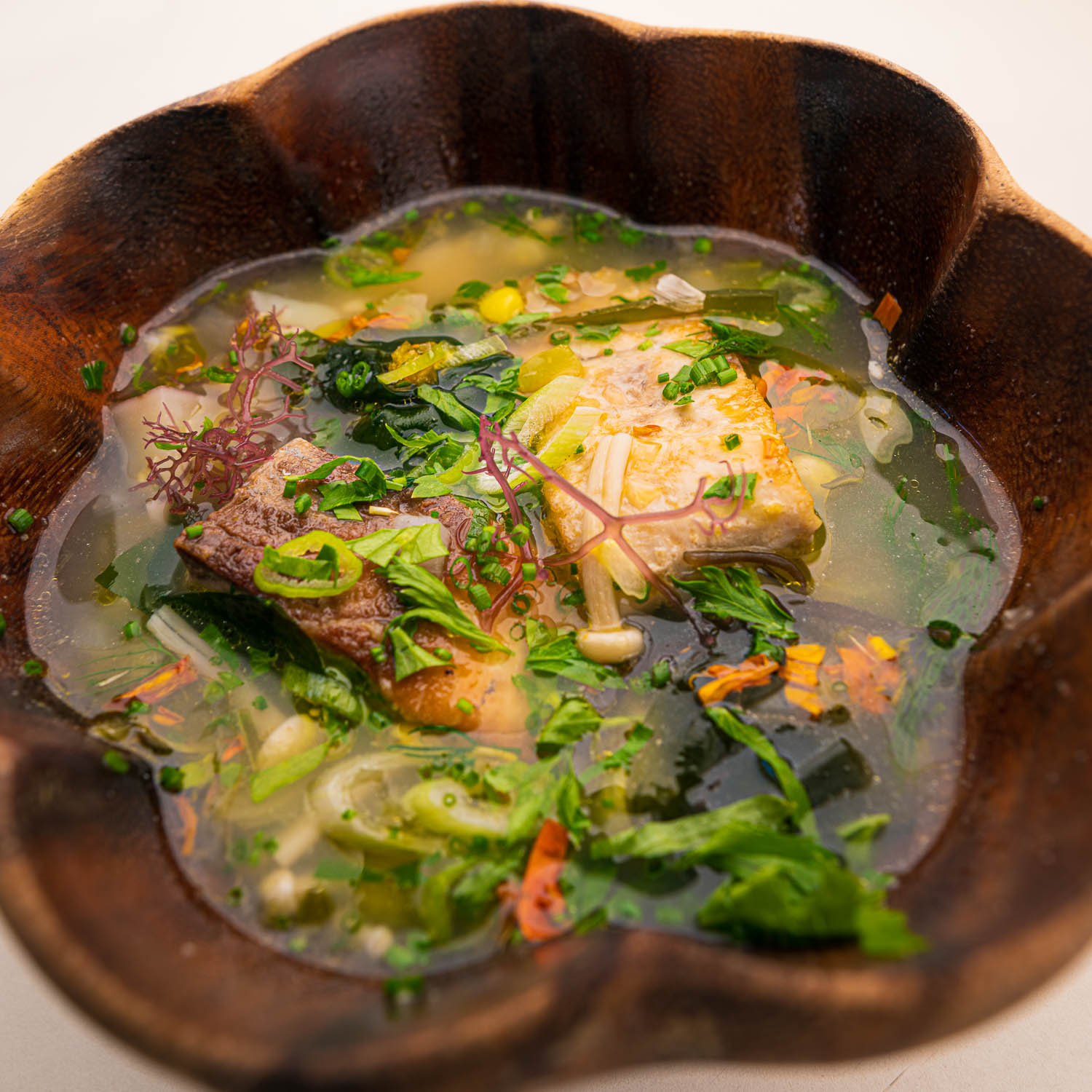
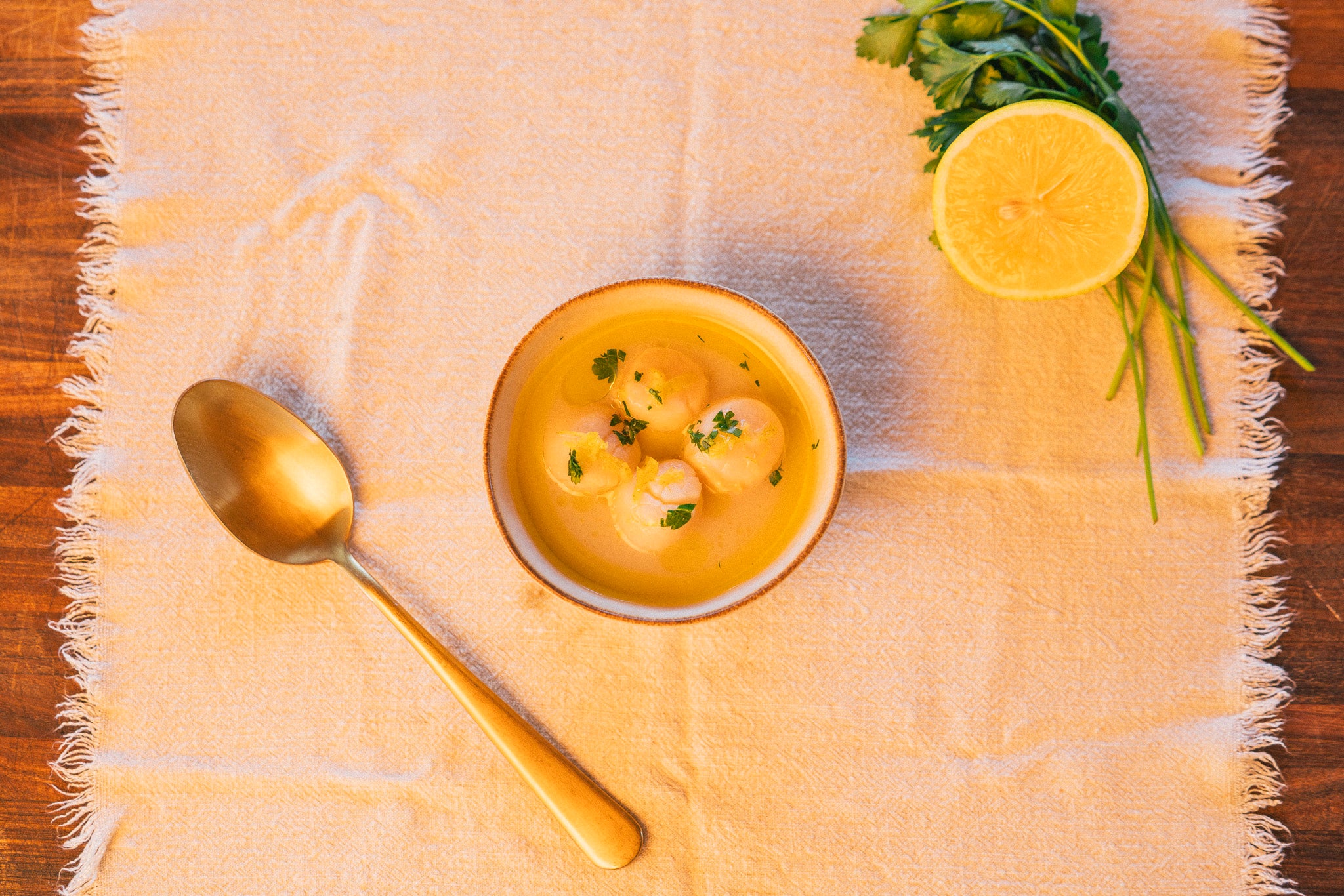
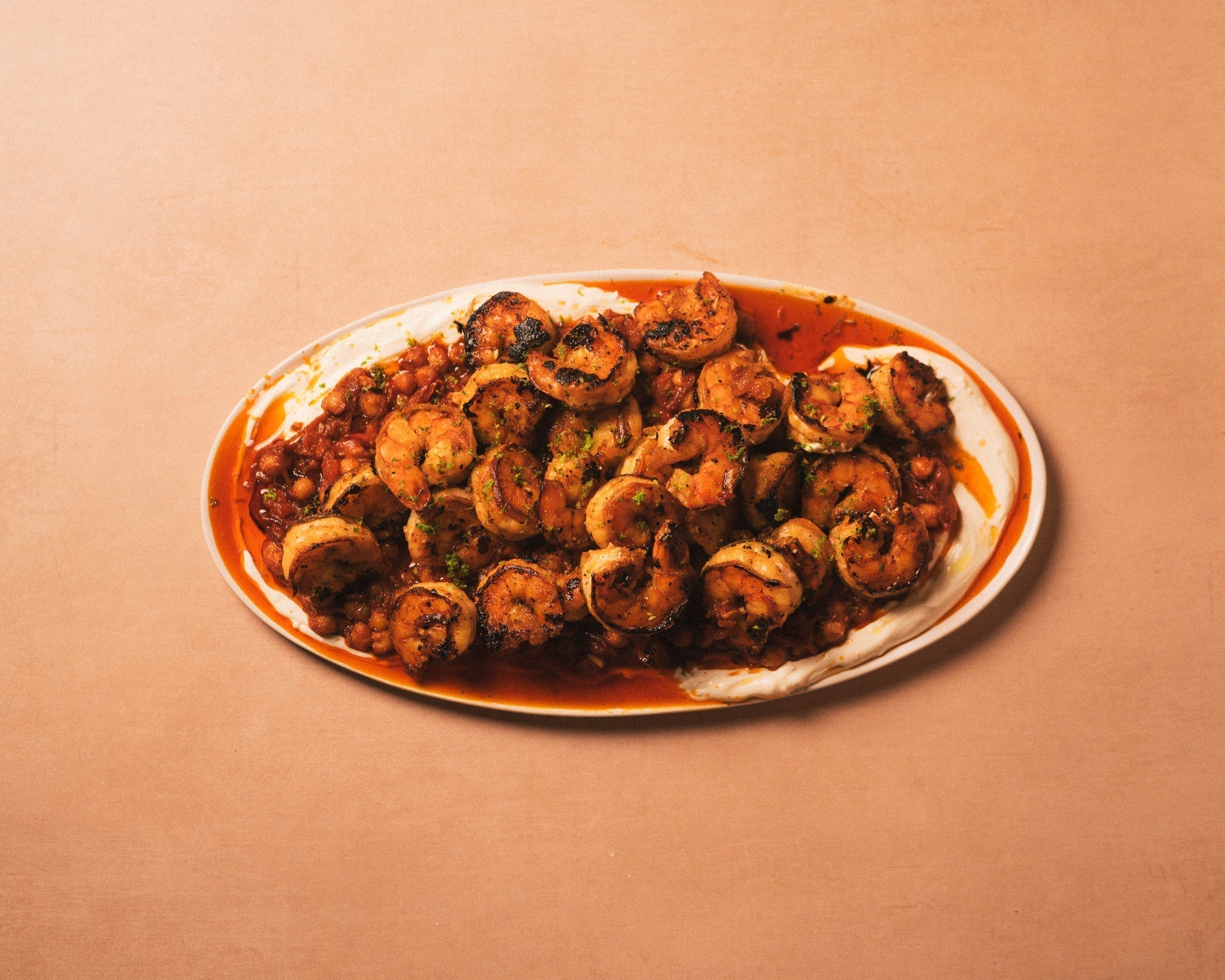
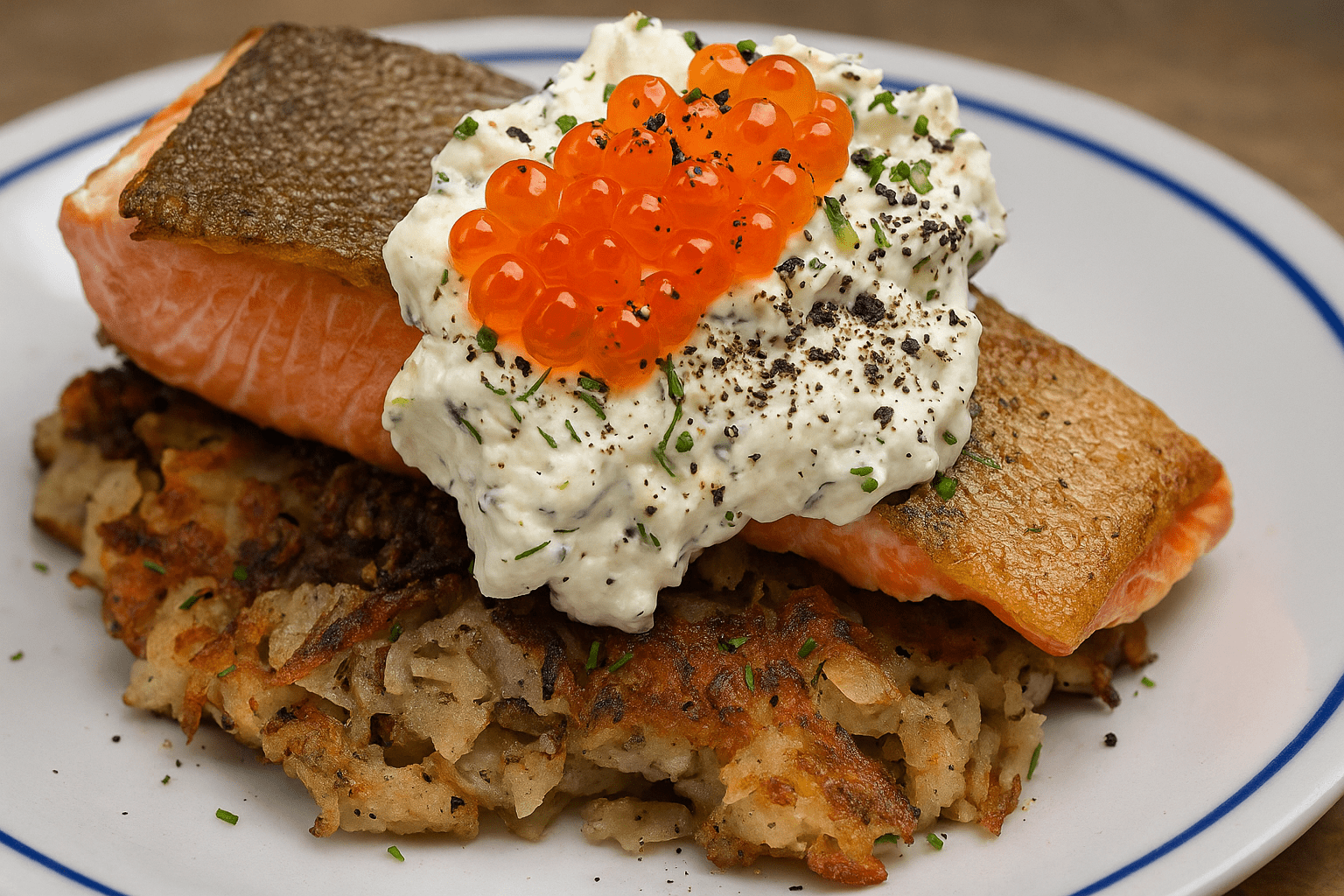
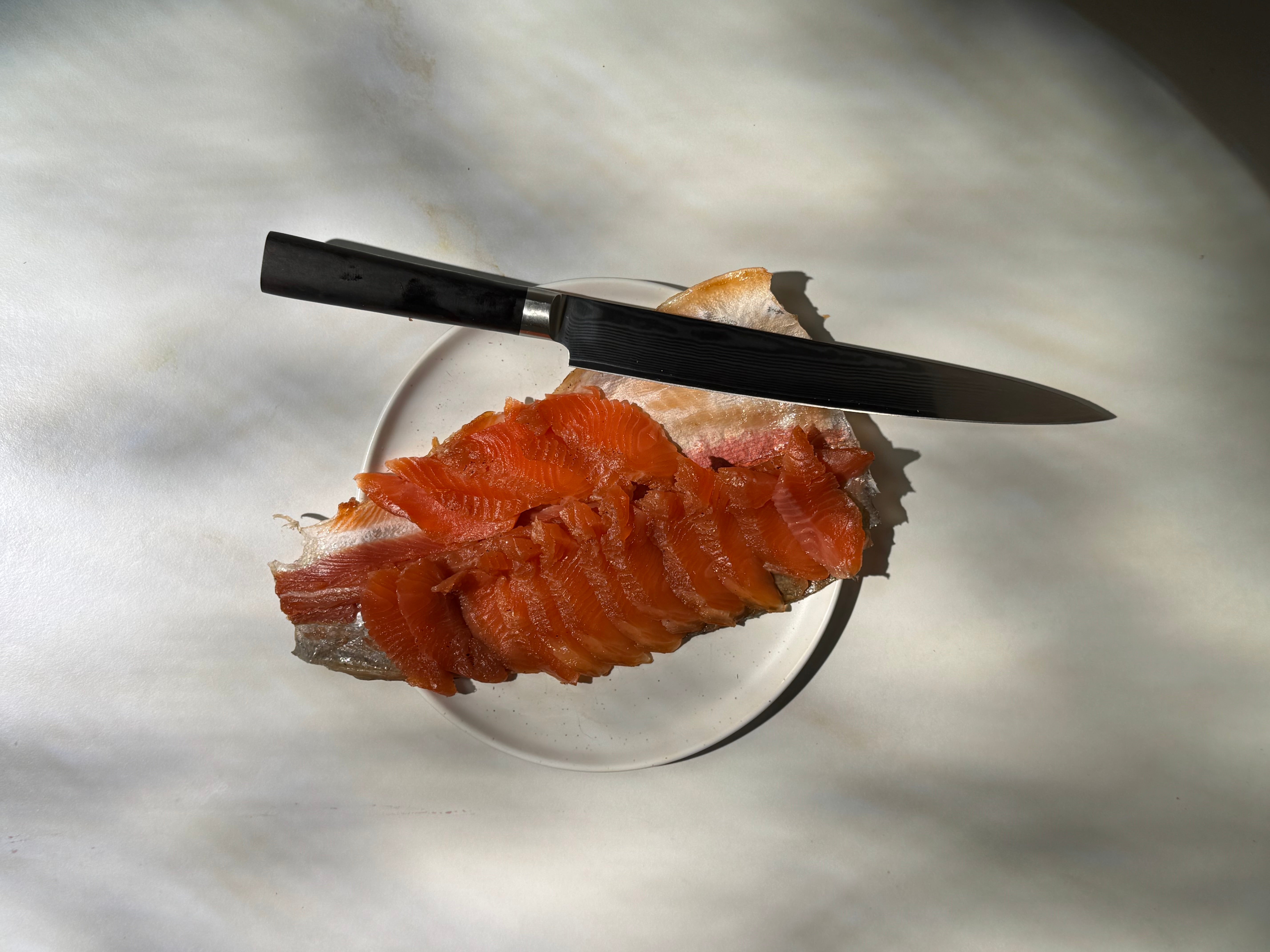
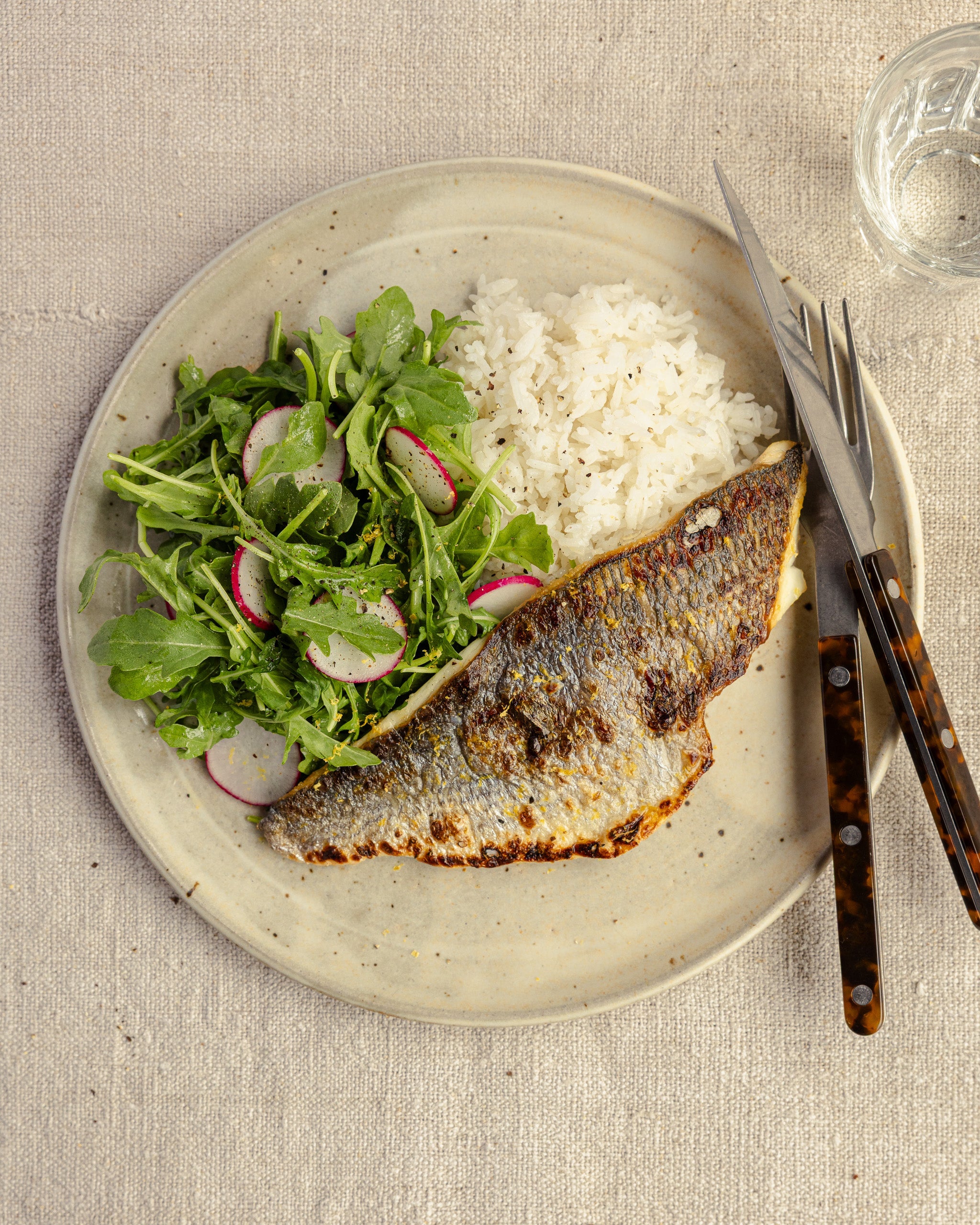
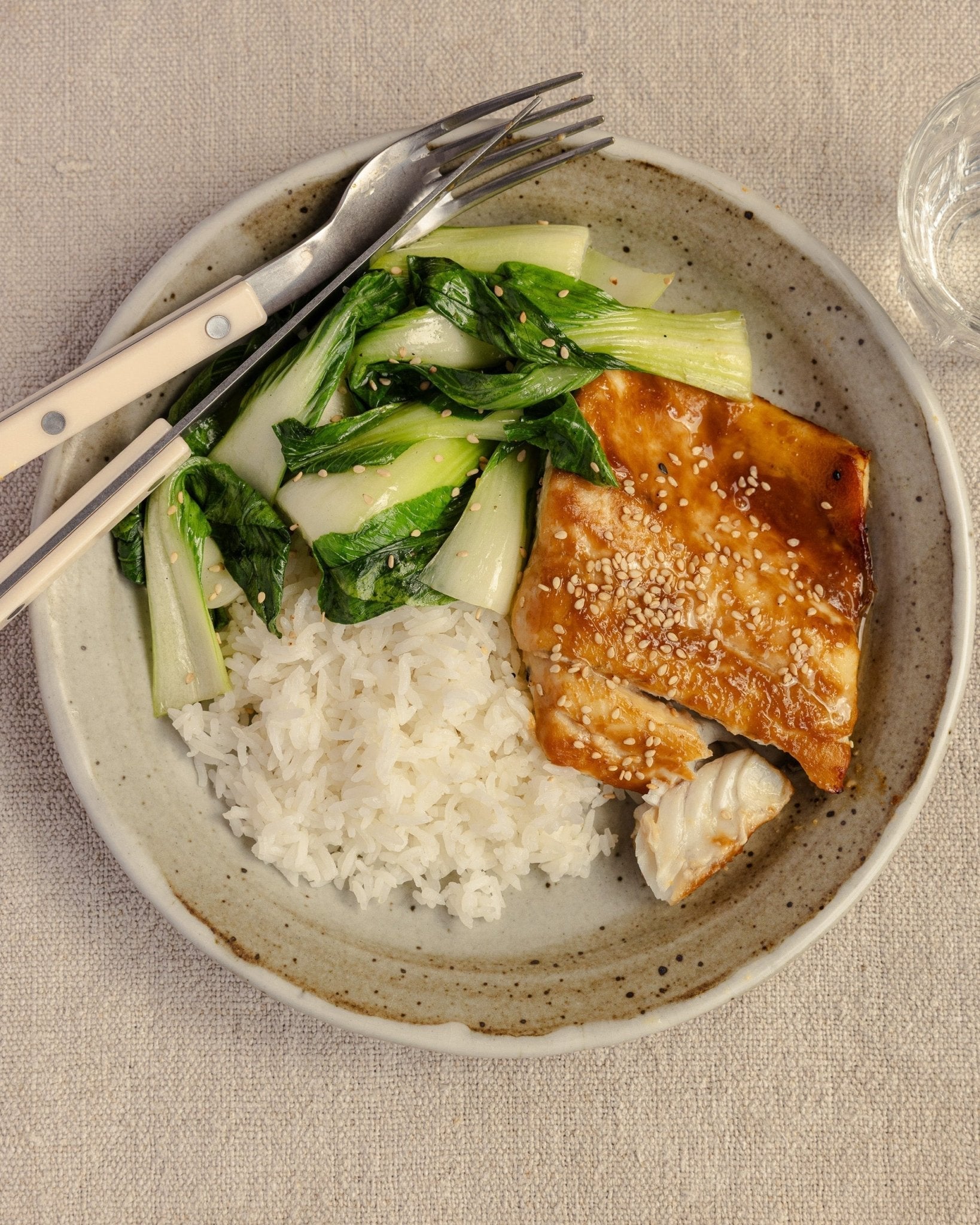
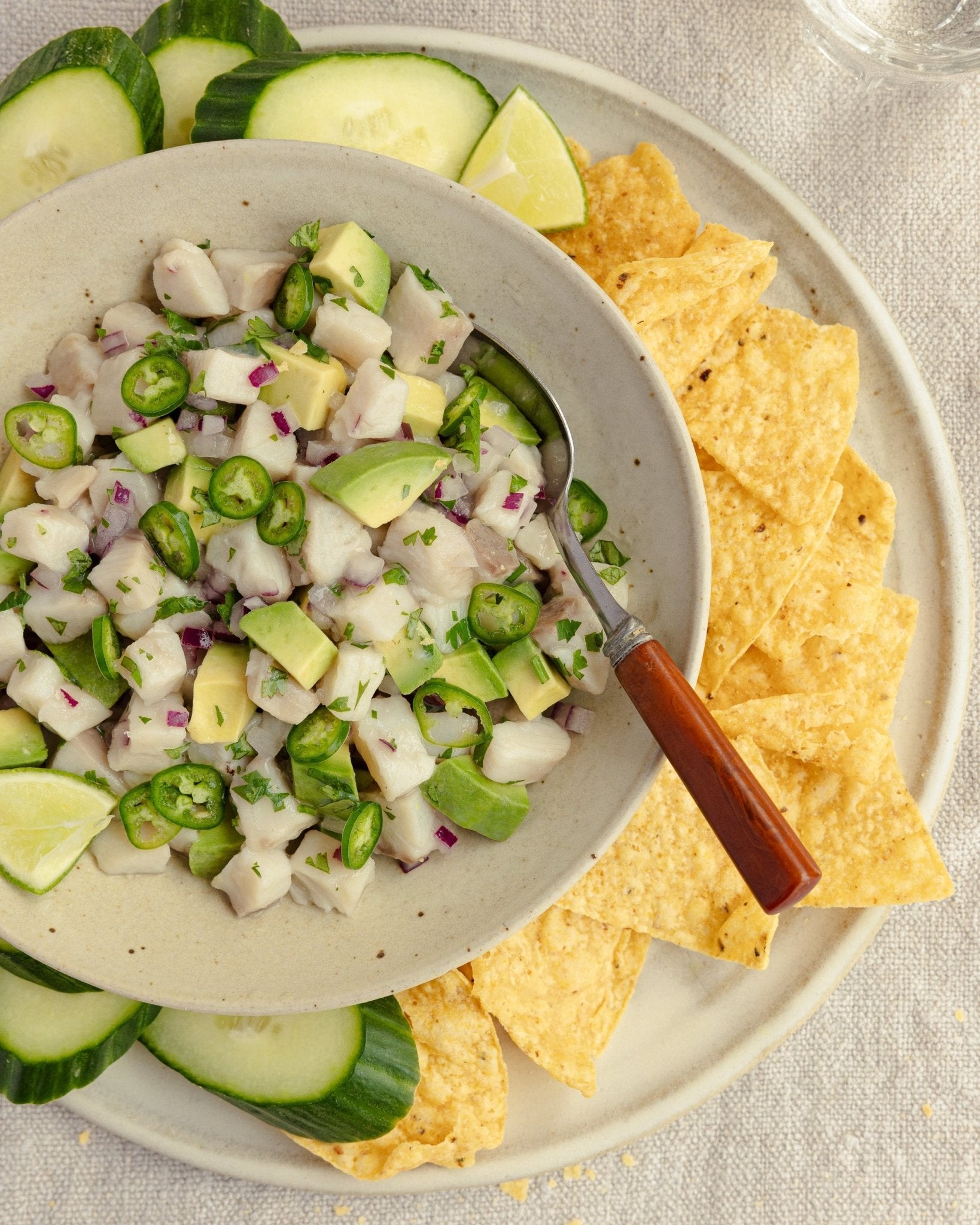
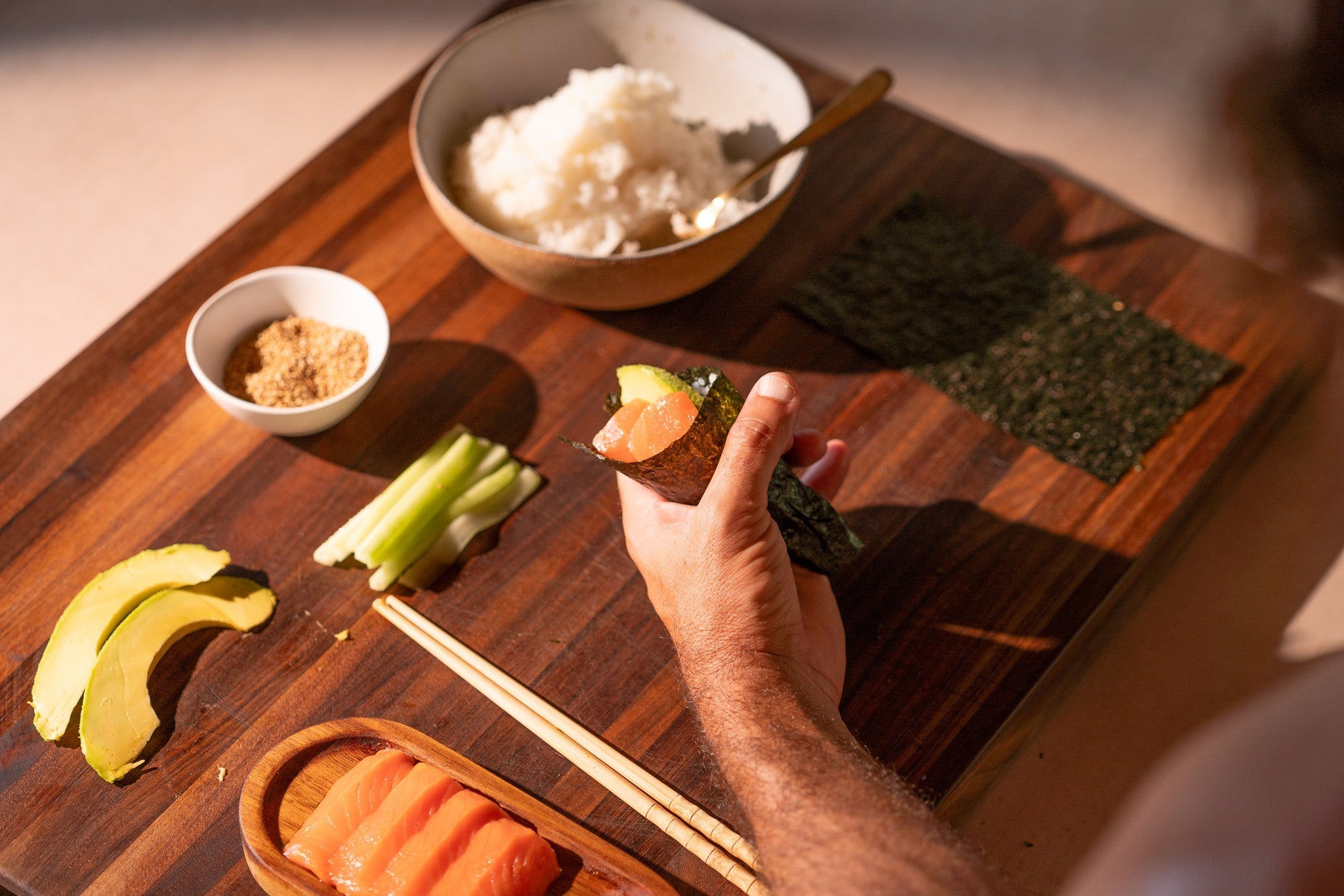
Share:
Glitne Halibut Ceviche with Cherry Tomatoes & Mint
Miso Smoked Halibut & Yellowtail Kanpachi Collar Kabobs